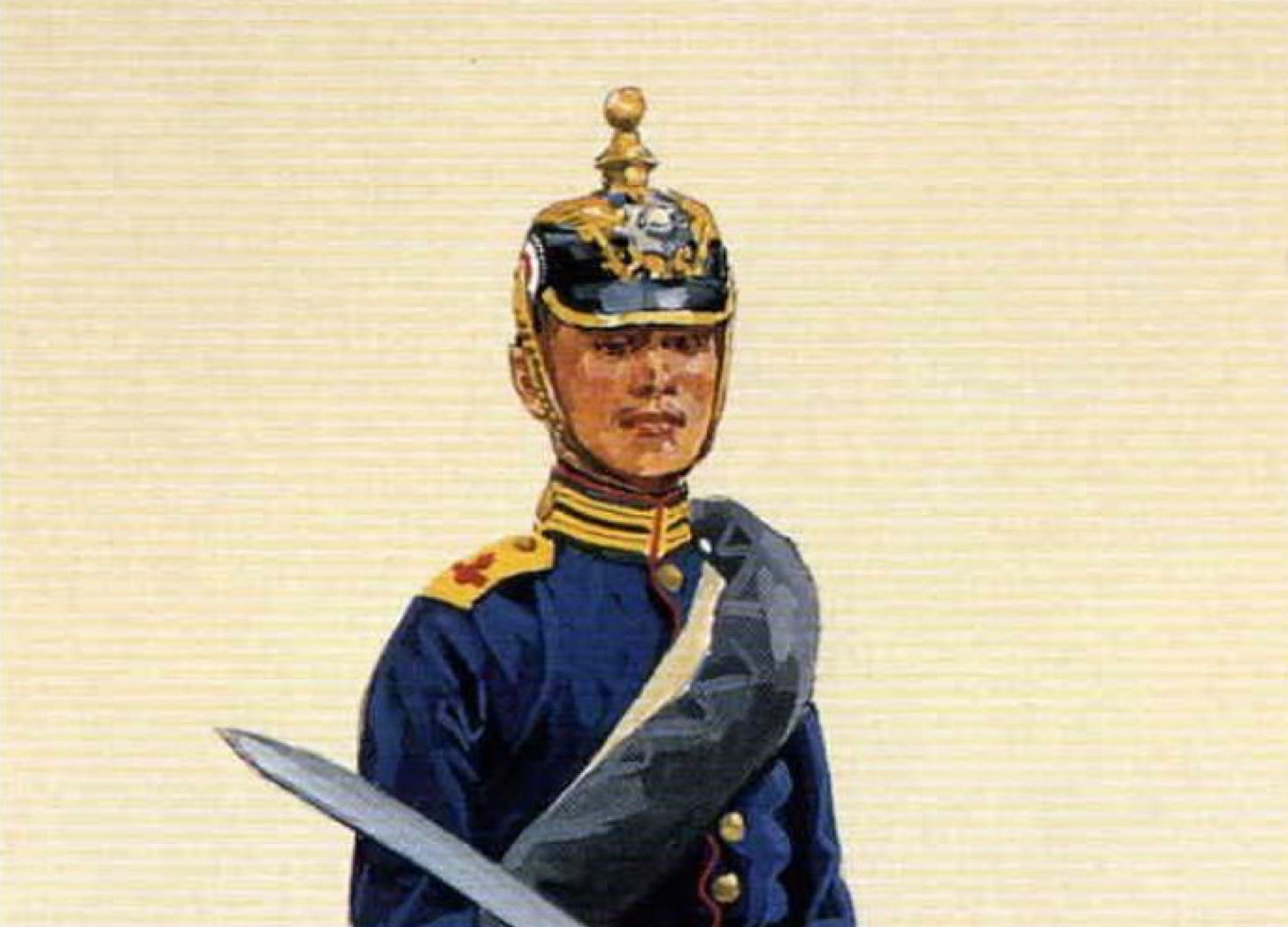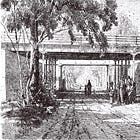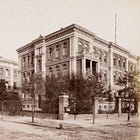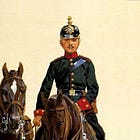The Artillery School in Berlin (VI)
From the Memoirs of Major General Franz von Lenski (1865-1942)
Soon after the end of the First World War, Franz von Lenski (1865-1942) wrote a memoir of his adventures as a junior officer in the last two decades of the nineteenth century. The post the follows continues our serialization of the fourth chapter of this book, the one that deals with the year that Major General Lenski spent as a student at the United Artillery and Engineer School in Berlin. (The links listed at the bottom of this page, in the section marked ‘for further reading’, will take you to other posts in this series.)
I was fortunate to have many relatives in Berlin, who treated me as if I were their son. In the home of my uncle, who, as I have already mentioned, helped me financially during his visit to Cologne in the days leading up to Carnival, I became acquainted with a well-to-do family. This, in turn, opened many doors to me on the west side of Berlin, and thus allowed me to attend many gatherings over the course of the winter.
The season, alas, saw its share of sadness. On New Year's Eve of 1885, my dear father, who was then living in Düsseldorf and suffering from a brief illness, succumbed to a pulmonary embolism. I arrived too late to close his eyes.
A year earlier, my father had retired from the railway service and moved to Düsseldorf. Unfortunately, after a life of effort, work, worry, and sacrifice, he was only able to enjoy a short period of rest. I remained in close contract with my stepmother, who had no children of her own and would continue to live in Düsseldorf until her own death.
My time at the Artillery School eventually came to an end. First, the officer from my regiment enrolled in the Selekta left Berlin. Then, on 15 July 1886, the first year students took their final examination.
Our number had dropped from six to five, because my dearest friend, the unforgettable G., had fallen ill in January 1886 with a paralysis of the right arm that even the doctors could not explain. This turned out to be the first sign of a serious spinal disease, which, 11 years of suffering, would kill him in the spring of 1897.
So five of us took the exam. After passing the test, we obtained, by order of the Military Cabinet, the status of fully qualified artillery officers, which, marvelous to say, increased our monthly salaries from 75 marks to 84 marks.
Three of us earned admission to the Selekta. Two, one of whom was myself, returned to our regiment.
I have yet to learn why I failed selection for the second-year course. I did very well on my exam (which was not particularly difficult). However, the selection for the Selekta took place before we took our final exam. (Such are the oddities of military life.) So, the results of the exams had no effect on the decision.
My classroom performance was better than that of most of the other students. I was, I suspect, below average in mathematics, but, I am sure, above average in tactics. At the time, my failure to earn a place in the Selekta annoyed me. However, I soon realized that, in exchange for missing a second year in Berlin, I would spend a wonderful year in Cologne in the company of splendid comrades.
Here ends the chapter.
Source: Franz von Lenski Aus den Leutnantsjahren eines alten Generalstabsoffiziers [From the Years an Old General Staff Officer Spent as a Lieutenant] (Berlin: Georg Bath, 1922) Chapter 4 ‘Die Vereinigte Artillerie- und Ingenieurschule zu Berlin’ [‘The United Artillery and Engineer School at Berlin’]
For Further Reading:
To Share, Support, or Subscribe:













This is an interesting look into officer training in times past, but quite baffling in the amount of time it took to complete the basic course (about 7 months?). In addition, it appears they spent around 2 years at their parent units after graduation from the cadet school before arriving at the Artillery School. My Officer Candidate School class lasted 14 weeks and my FA Officers Basic Course lasted an additional 18, for a total of 8 months training. I wonder why they took so long to accomplish a similar course of study, particularly the Artillery training?
I am enjoying these excerpts. It is a nice slice of life from an earlier time. It also belies the mythology of German efficiency and rational organization.